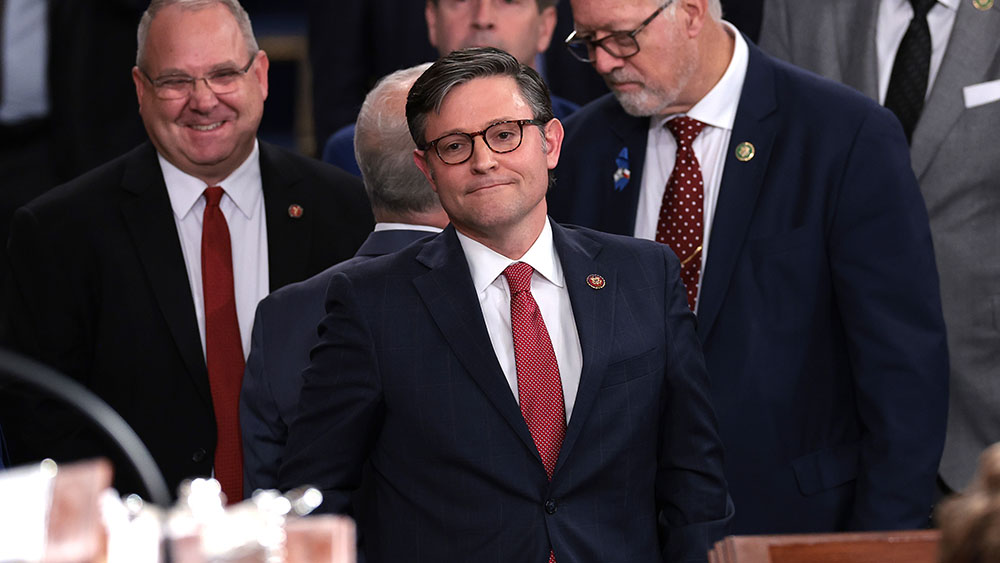Defending Principle: Why Rep. Thomas Massie’s Stand Against Speaker Mike Johnson Matters
By Jose Nino
Apr 25, 2024

IIn recent developments within the GOP, Rep. Thomas Massie’s outspoken challenge to Speaker Mike Johnson’s leadership has ignited a critical discourse on the principles and direction of the Republican Party. At the heart of this dispute is a fundamental disagreement over the reauthorization of the Foreign Intelligence Surveillance Act (FISA) and broader issues related to foreign aid and surveillance laws, which Massie argues betray core Republican principles. This confrontation is not merely a party squabble—it encapsulates a larger battle for the soul of the Republican Party.
The Case Against Speaker Johnson
Speaker Mike Johnson’s role in orchestrating what Rep. Massie described as a “brainwashing session” to push through the reauthorization of FISA has raised significant concerns about transparency and integrity within the GOP leadership. Massie’s account of the classified briefing—where members were isolated from their usual informational resources and pressured into agreement—paints a troubling picture of leadership tactics that seem more coercive than democratic.
Johnson’s portrayal of himself as a “wartime speaker,” battling through a period he equates to the Civil War, reveals a mindset focused on crisis management. However, leadership in times of crisis requires not just firm decisions but also a deep commitment to the principles that define a party’s identity. Massie’s challenge to Johnson’s approach, particularly regarding issues like foreign surveillance and aid, highlights a growing discomfort among certain segments of the GOP with what they see as deviations from their foundational values of limited government and individual liberties.
RELATED: On the Brink: How Israeli Strikes Risk Tipping the Scale Towards Global Conflict
Massie’s Principled Stand
Rep. Thomas Massie’s resistance is notable for its courage and adherence to principle. In an era where political expediency often trumps foundational values, Massie’s willingness to stand up against his own party’s speaker—and in a very public way—demonstrates his commitment to the ideals he believes the Republican Party should stand for. His actions reflect a broader debate within the party about the direction it should take, especially in relation to issues of privacy, individual rights, and foreign intervention.
Massie’s objections go beyond the mere details of the FISA reauthorization. They touch on a fundamental question about the extent to which the government should have the power to surveil its citizens. This is a pivotal issue for many conservatives who hold dear the constitutional protections against undue government intrusion.
The Broader Implications for the GOP
The clash between Massie and Johnson is emblematic of a larger ideological struggle within the Republican Party, one that pits a traditionalist, interventionist faction against a more libertarian, America-first contingent. This is not just about who leads the House or the specifics of one piece of legislation; it is about what kind of party the GOP wants to be, especially as it navigates the complexities of modern governance and global politics.
As the GOP continues to redefine its identity in the post-Trump era, the outcome of this struggle will have significant implications for its electoral fortunes. The party’s ability to unify around a coherent set of principles will be crucial as it prepares to contend not only with the Democrats but with its internal factions.
Nobody’s ‘Wartime’ Speaker
In challenging Speaker Mike Johnson, Rep. Thomas Massie has taken a stand for what he sees as the core values of the Republican Party. Whether one agrees with Massie’s positions or not, his actions demand a reassessment of the party’s commitments to its stated principles
As the GOP looks to the future, it must decide whether it will adhere to its foundational ideals or continue down a path that some of its members view as fundamentally at odds with those principles. The resolution of this conflict will not only determine the party’s direction but also its integrity and appeal to the American electorate.



